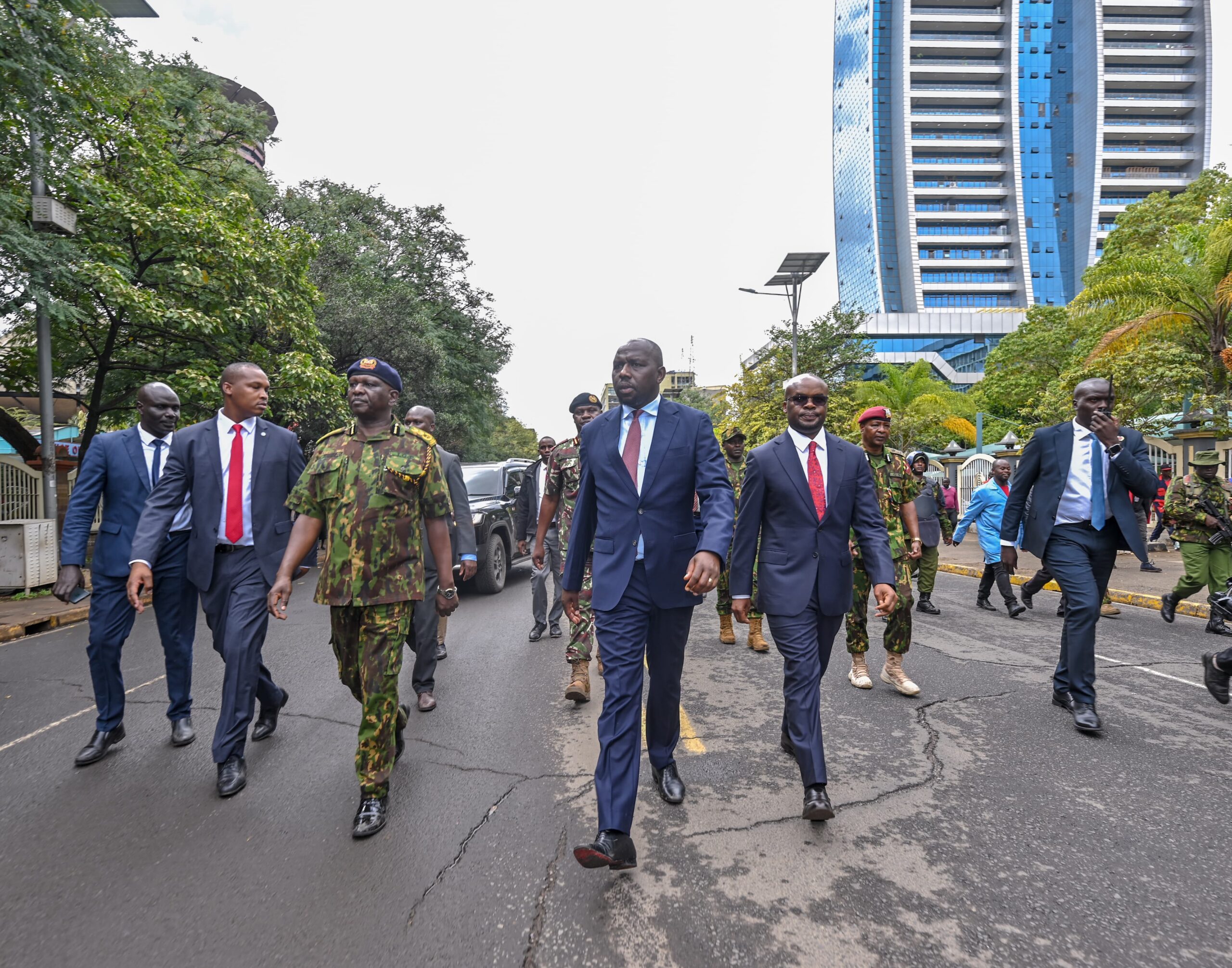
LSK Slams Murkomen’s ‘Shoot on Sight’ Remarks Amid Uproar Over Police Brutality » Capital News
NAIROBI, Kenya June 28 – The Law Society of Kenya (LSK) has strongly condemned Interior Cabinet Secretary Kipchumba Murkomen for his controversial remarks urging police officers to shoot civilians who attempt to storm police stations.
The LSK has termed the order reckless, unconstitutional, and a dangerous green light for extrajudicial killings.
Murkomen made the remarks on Thursday during a visit to Kikuyu Constituency, just a day after nationwide protests turned deadly. At least 16 people were confirmed dead by Amnesty International, with hundreds more injured, including police officers. The protests—largely led by Gen Z youth—were held to commemorate the June 25, 2024 anti-Finance Bill demonstrations in which over 60 protesters were killed.
The CS, while addressing a crowd near the Deputy County Commissioner’s office, was heard saying in Kiswahili: “Na tumeambia polisi mtu yeyote atakaribia police station piga yeye risasi,”—loosely translated as “We have told police to shoot anyone who approaches a police station.”
The crowd responded with mixed reactions, some jeering the CS as he attempted to justify the shoot-on-sight directive. “Mtu mwenye anaenda kuiba bunduki, abembelezwe?” he posed, adding, “Bunduki sio mandazi!” (Guns aren’t snacks!).
His remarks came after reports showed that police stations in several counties, including Dagoretti, Molo, and Ol Kalou, were attacked and torched during the protests. In Dagoretti, at least five firearms were reportedly stolen by rioters, according to government officials.
But the LSK has warned that such comments by a senior government official could embolden security forces to use lethal force unlawfully.
In a sharply worded statement, LSK President Faith Odhiambo said: “The Cabinet Secretary has no authority under the law to issue such an order. It is not only ultra vires but also unconstitutional.”
The LSK further reminded police officers of their individual responsibility under both national and international law. “Any unjustified act of aggression, disproportionate use of force, or extrajudicial killing carried out under such illegal directives will be deemed a premeditated crime,” the statement read.
The lawyers’ body also cited Article 244 of the Constitution and the Sixth Schedule of the National Police Service Act, which clearly spell out the limited circumstances under which firearms may be used—including as a last resort and when life is in imminent danger.
Later that evening, Murkomen attempted to walk back the comments amid growing public backlash. While speaking at a graduation ceremony at the Border Police Training Campus in Kanyonyo, Kitui County, he clarified: “Hatujasema itumiwe kiholela… Polisi ambaye maisha yake iko hatarini akitumia silaha hatashtakiwa,”—implying that use of firearms should be restricted to life-threatening situations only.
Meanwhile, civil society groups, opposition politicians, and international human rights watchdogs have expressed growing concern over the government’s handling of the ongoing protests, which were marked by deaths, mass arrests, looting of businesses, and alleged suppression of media coverage.
The protests erupted across Nairobi, Kisii, Mombasa, Nyeri, Nakuru, and Eldoret on Wednesday, as youth took to the streets demanding justice for victims of last year’s violence, accountability from police, and reforms in governance.
In response, police deployed heavily across major towns, with some protest hotspots witnessing live ammunition being used to disperse crowds. Dozens of businesses were vandalised or looted, and several government installations were damaged. Kenya Power confirmed that a security guard was shot and killed outside its Stima Plaza headquarters, bringing further scrutiny to police conduct.
As the country grapples with the aftermath, legal experts and human rights defenders have called on President William Ruto’s administration to de-escalate tensions and allow peaceful assembly as guaranteed under Article 37 of the Constitution.
“The protests we witnessed were not peaceful,” President Ruto said in a separate statement. “They were calculated chaos, destruction and economic sabotage. Those responsible will be held accountable.”
The LSK, however, insists that upholding the rule of law must remain paramount, even in times of national tension.
“Kenya is not a police state,” Faith Odhiambo said. “Citizens must not be criminalised for demanding accountability.”